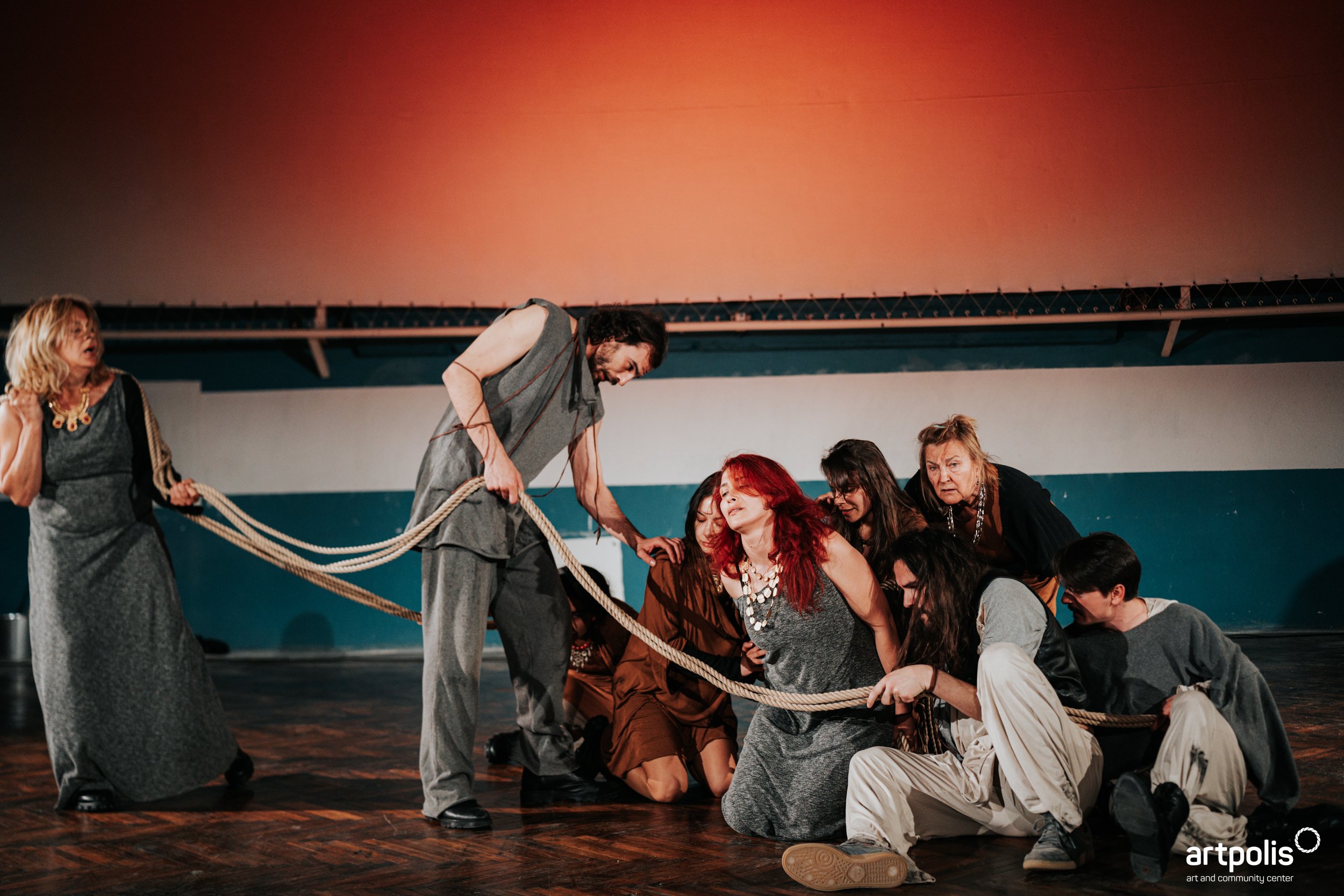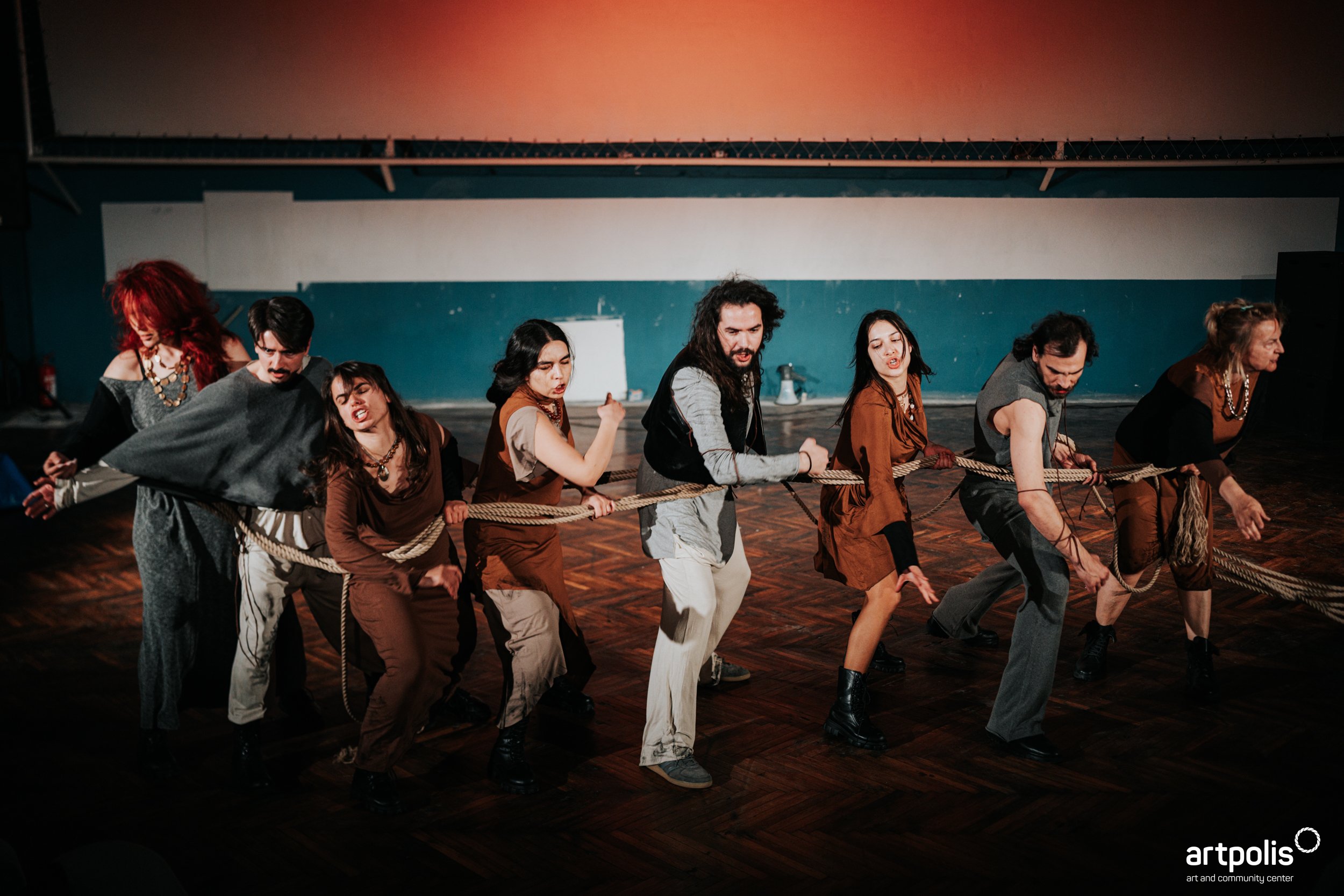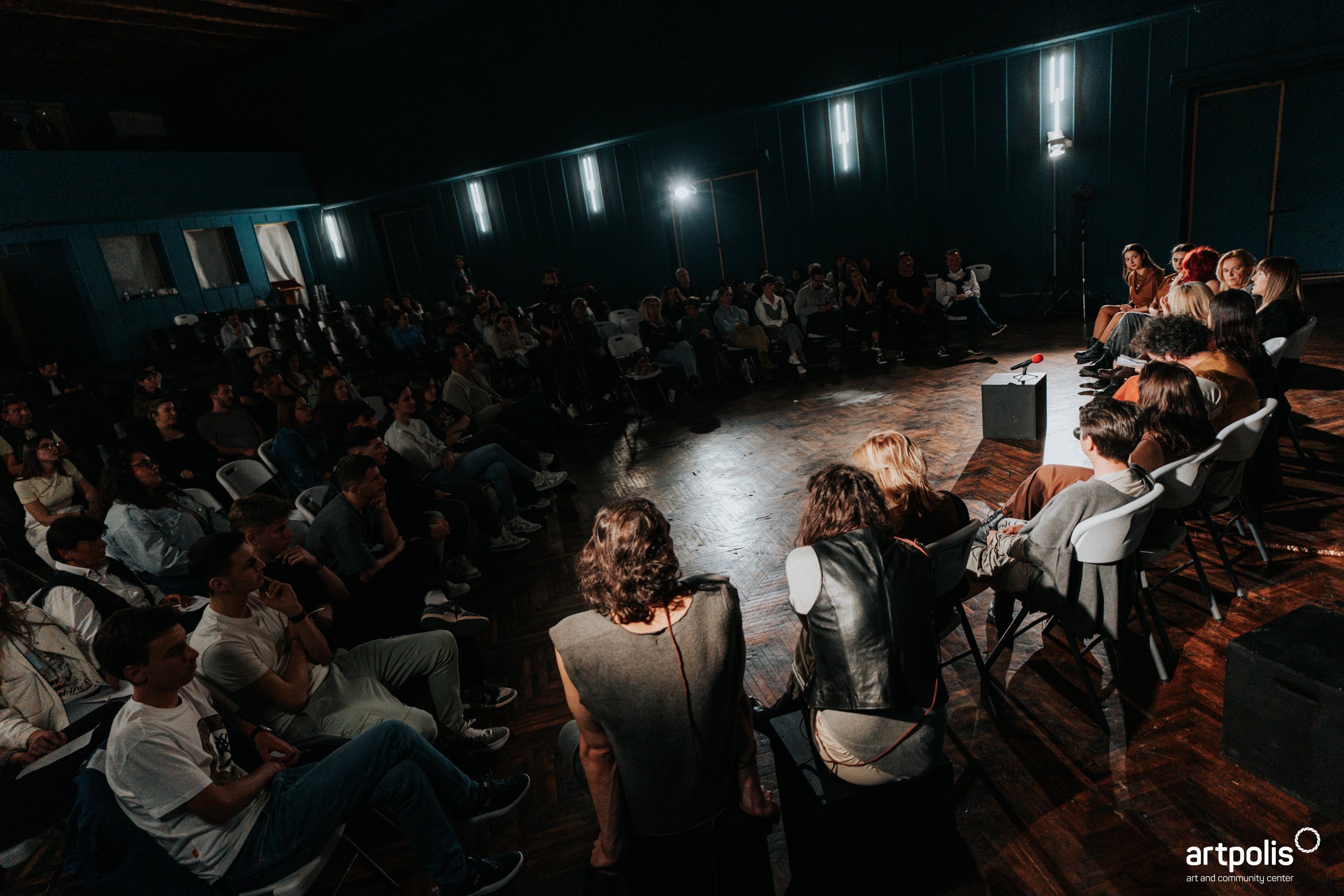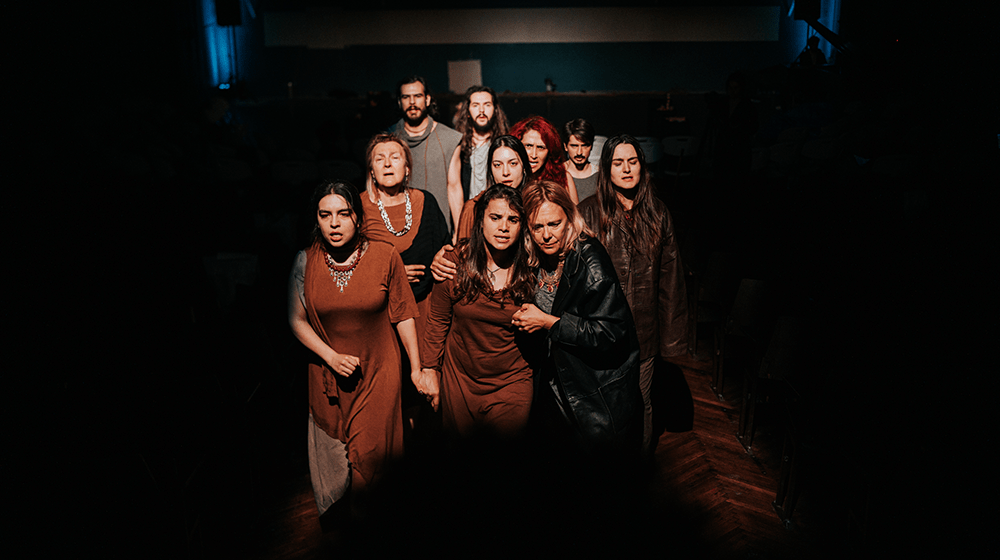In a powerful display of feminist activism, "The Women of Troy" took center stage at Cinema Lumbardhi on April 15, 2024. Directed by Zana Hoxha and Maja Mitić, this production, based on Euripides' classic drama and contemporary text by Shpëtim Selmani, resonated deeply with audiences, echoing the timeless struggles of women in times of war.

Staged by actors from the Artpolis Ensemble alongside actresses from Serbia, the performance shed light on the experiences of women in the aftermath of conflict, exposing the realities of oppression and suffering. Through the tragedy of "The Women of Troy," the impact of war on humanity reverberated throughout the theater, serving as a stark reminder of the pervasive nature of violence in our world.
As Euripides once observed, "Troy is still everywhere," drawing parallelisms between ancient and modern conflicts. From the dehumanization of individuals to the trauma inflicted by armed conflict, the production highlighted the consequences of war, sparing none, not even the most vulnerable.

Artists transformed into advocates for peace, their voices amplified through the storytelling of "The Women of Troy." By weaving together past and present narratives, the performance resonated with audiences who have witnessed the scars of war firsthand, fostering empathy and solidarity with communities still grappling with the aftermath of conflict.
At its core, the production embraced a feminist lens, challenging norms and amplifying the voices of women whose fates are often determined by the whims of powerful men. Through the plight of characters like Cassandra, Polyxena, Hecuba, and Andromache, the audience was confronted with the realities of gender-based violence and subjugation, sparking conversations about equality and justice.
The bilingual approach, incorporating both Albanian and Serbian languages, emphasized the universality of the themes explored in "The Women of Troy," fostering cross-cultural dialogue and understanding among diverse audiences. Supported by UNFPA through the 'Youth 4 Inclusion, Equality & Trust' project, "The Women of Troy" stands as a testament to the power of art in advocating for social change and promoting a culture of peace.



